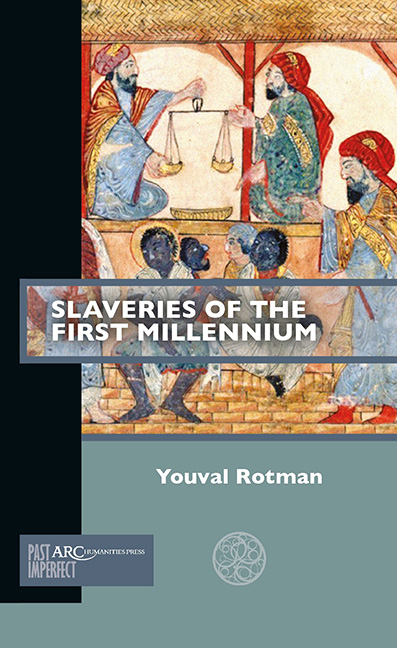Book contents
- Frontmatter
- Contents
- Introduction: Whence Slavery?
- Chapter 1 From Present to Past and Back
- Chapter 2 Slavery between Two Phenomena: Empire and Christianity
- Chapter 3 Enslavement, Captivity, and the Monotheistic Turn
- Chapter 4 New Polities, New Societies, New Economies
- Chapter 5 Migration, Integration, Connectivity
- Conclusion: Slavery as Historical Process— Towards a New Definition
- Further Reading
Chapter 4 - New Polities, New Societies, New Economies
Published online by Cambridge University Press: 13 January 2022
- Frontmatter
- Contents
- Introduction: Whence Slavery?
- Chapter 1 From Present to Past and Back
- Chapter 2 Slavery between Two Phenomena: Empire and Christianity
- Chapter 3 Enslavement, Captivity, and the Monotheistic Turn
- Chapter 4 New Polities, New Societies, New Economies
- Chapter 5 Migration, Integration, Connectivity
- Conclusion: Slavery as Historical Process— Towards a New Definition
- Further Reading
Summary
The previous chapter challenged the theory that the decline of slavery was one of the products of the passage from Antiquity to the Middle Ages. Nevertheless, the Latin terminology of slavery reveals a change in the meaning of the terms “slave,” “slavery,” or “enslavement” (Latin: servus and servitium/servitus). By the eleventh and twelfth centuries these terms began to be employed to designate the status of serfs, the medieval dependent peasants in Western and Central Europe, who were legally attached to the land they cultivated. Their obligations and services to the landowner, their “servitude,” were designated by the term servitium/servitus (Bloch, “Comment et pourquoi finit l’esclavage antique”). This marks the establishment of a new socioeconomic system in Western Europe: serfdom. But what happened between these two periods? What was the meaning of these terms in Western Europe between the eighth and the eleventh centuries? And what were their equivalents in the neighbouring medieval Mediterranean societies? Such questions invite us to reflect on the language of slavery.
The Language of Slavery, Servitude, and Social Dependency
Roman and medieval Latin employ the term servus for a male slave, ancilla for a female, mancipium for both, along with puer (“boy”) for a young male slave; libertus and later aldius were employed for freedmen. What is remarkable about the use of these terms in early medieval Latin legal formularies and other documents is the inconsistency in the juridical meaning of these terms. They refer sometimes to slaves, sometimes to freedmen, or to free persons. Servus or mancipium could designate a person enslaved in the household or for agricultural work in the countryside, a tenant, and even a slaveholder tenant who was under legal obligations to a landowner (Rio, Slavery after Rome). Medieval Latin documents use the terms servus and mancipium to designate states of legal dependency vis-à-vis a slaveholder, a landowner, or any party towards whom these persons had legal obligations. In other words, servus came to designate someone who was legally dependent on another party, and his dependency consisted in providing services. In the Carolingian empire cases of self-sale, self-donation, debt bondage, were all translated into a person-to-person relationship in the form of a legal dependency.
- Type
- Chapter
- Information
- Slaveries of the First Millennium , pp. 65 - 92Publisher: Amsterdam University PressPrint publication year: 2021

